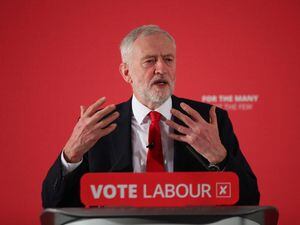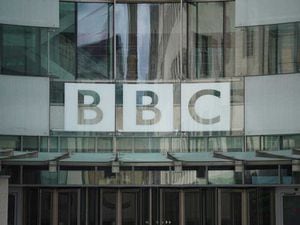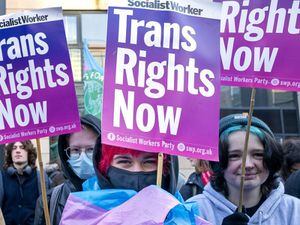Corbyn faces fresh backlash over Labour anti-Semitism row
President of the Board of Deputies says Labour ‘deserved’ to lose votes after the Tories take Barnet.

Jeremy Corbyn is facing angry recriminations over his alleged failure to tackle anti-Semitism in the Labour Party after it lost out to the Tories in one of the most strongly Jewish boroughs in the country.
Defeated councillor Adam Langleben said the party had been “punished” by voters in Barnet, north London, over the refusal of the national leadership to face up to the issue.
He said Mr Corbyn did not even understand the problem and he called on the Labour leader to visit the borough to apologise to the local party.
Deputy leader Tom Watson acknowledged the Jewish community had “sent us a message” and said the party had to learn lessons when it came to dealing with anti-Semitism in its own ranks.
Visiting the borough, where the Conservatives unexpectedly snatched the council from no overall control, Theresa May said Labour had paid the price for its neglect of the issue.
“I think people of all faiths have rejected the vile anti-Semitism that has gone unchallenged in the Labour Party for too long,” she told supporters.
Jonathan Arkush, the president of the Board of Deputies of British Jews – who has led calls for Mr Corbyn to take action – said Labour deserved to have lost votes in the borough.
“I can’t say if the taint of anti-Semitism affected the size of @UKLabour vote, but it certainly deserved to,” he tweeted.
Polling expert Professor Sir John Curtice said Barnet should have been a “relatively easy plum” for Labour to pick, but on the night however, it was the Tories who were celebrating.
There was a similar picture in the Kersal ward in Salford – another strongly Jewish area – where the Conservatives took the seat from the Labour incumbent.
Mr Langleben, a member of the Jewish Labour Movement national executive, said that in both areas the party had paid the price for not dealing with the anti-Semitism issue.
“For too many members of the Jewish community voting Labour yesterday was simply impossible, regardless of who the candidate was,” he told Sky News.
“In areas where there are high levels of Jewish population, we were punished and punished very badly by the voters.
“The message to us locally in Barnet is clear that Jeremy Corbyn and the Labour leadership do not understand the problem, let alone have any attempt to deal with it.”
Despite recent criticisms by senior Jewish figures of Mr Corbyn over the issue, Mr Langleben said the Labour leader had been so confident they would take Barnet he had been planning to visit the borough on Saturday for a victory celebration.
“We hope that he will continue with his plans to come to Barnet tomorrow and actually start by making an apology to the Jewish community and the local Labour parties and the people of Barnet,” he said.
Mr Watson said the party was taking action to tackle the problem, but acknowledged that more needed to be done.
“There is no doubt the Jewish community have sent us a message in Barnet and I think we have to understand that,” he told the BBC .
“I hope we can come back to Barnet in years to come and say `We have learnt our lesson and we have dealt with our own anti-Semitism problem’.”
Shadow communities secretary Andrew Gwynne told the BBC Radio 4 Today programme: “We have got a job to do which is to rebuild trust and confidence with the Jewish community.”
Elections expert Professor John Curtice, of Strathclyde University, said that his analysis of last night’s results showed a pattern of depressed Labour votes in areas with large Jewish communities.
Prof Curtice told the BBC: “If you take the wards where over 4% of the electorate called themselves Jewish in the 2011 census, the Labour vote typically is about four points less good in such wards than elsewhere.
“If you look within Bury and Barnet, where there are a number of wards with quite substantial Jewish communities, then that gap is bigger.
“It is difficult to avoid the conclusion that the Labour Party performed less well in wards that have quite a lot of people from the Jewish community.
“It’s a little bit of an inferential leap – but frankly not a very big one – to say that probably the anti-Semitism row has caused the Labour Party some difficulty in places with relatively large numbers of Jews.”





